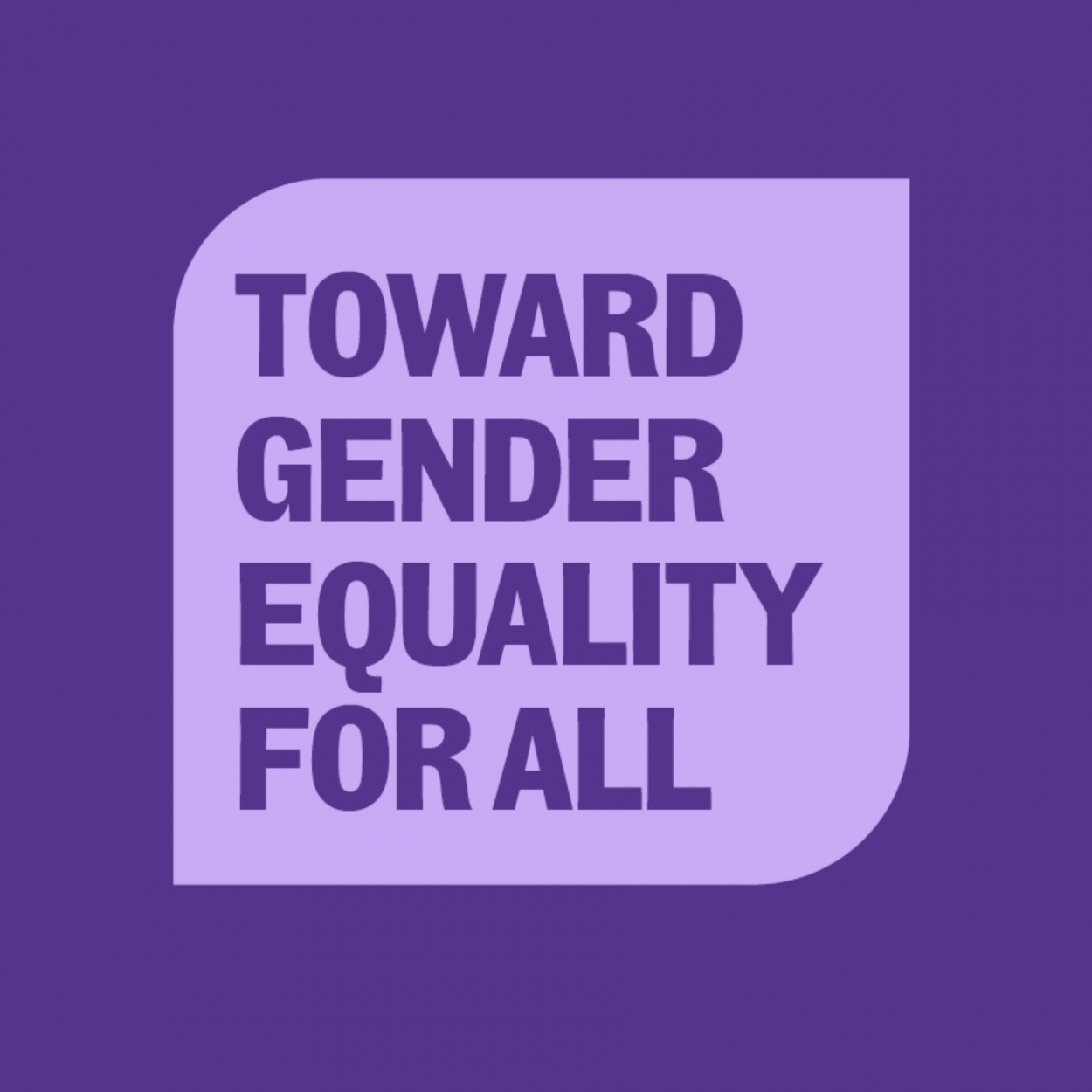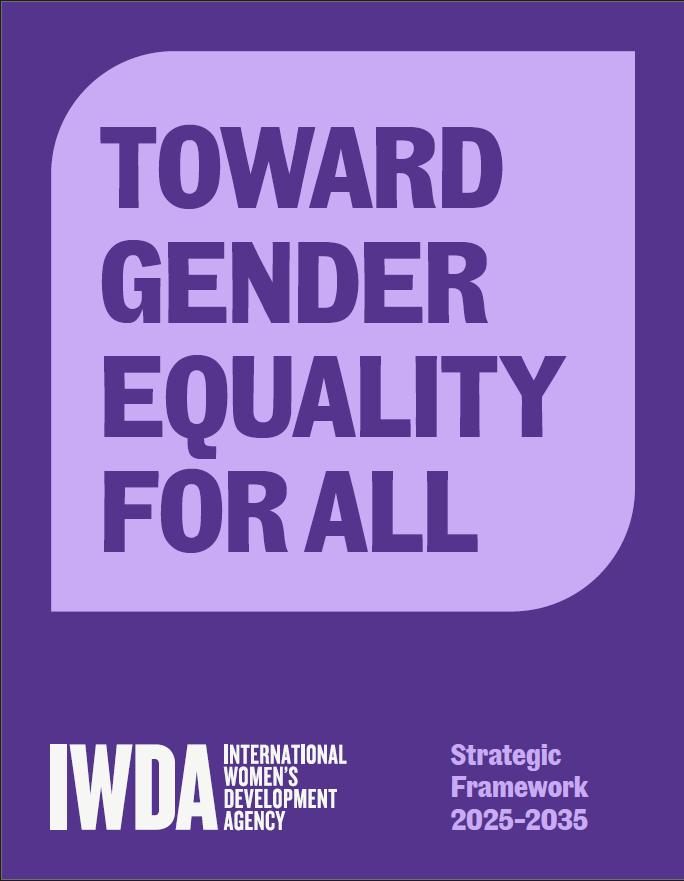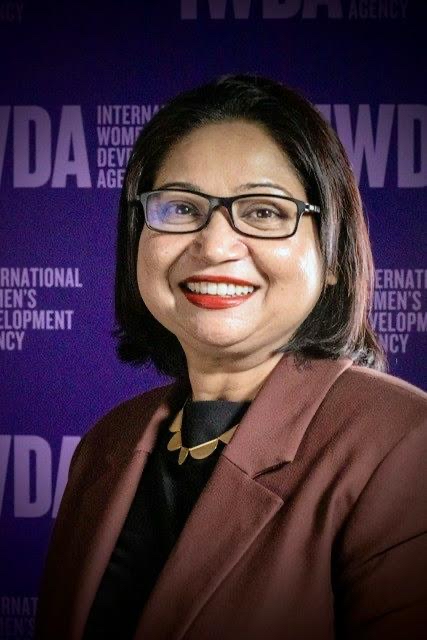
Introducing IWDA’s New 10-Year Strategy: CEO Update
We are proud to launch IWDA’s new 10-Year Strategy – a bold, future-focused roadmap to advance gender equality and transform systems of power. This strategy is more than a document – it is our commitment to feminist movements, to decolonial practice, and to the collective power of those demanding a more just and equitable world.

This launch comes at a particularly pivotal moment in IWDA’s history. Forty years ago, our founders came together with a simple but radical proposition: an organisation for women, by women, committed to gender equality. From their approach to partnerships grounded in respect, reciprocity and power-sharing, to their focus on feminist knowledge creation and advocacy for systemic change – IWDA has always stood for a different way of doing things.
With this strategy, we honour that powerful legacy while stepping boldly into the future. This is our roadmap for the decade ahead – and our renewed commitment to transforming systems of power and injustice through feminist action.
Anchored in the lessons of our 40-year journey, and guided by our fiercely held feminist and decolonial values, this new framework sets out both our long-term vision and the actions we will prioritise over the next three years to:
- Shift resources to women’s rights and aligned organisations
- Engage in movement strengthening
- Advance feminist and decolonial knowledge for change
- Live our values by modelling a different way of being as a feminist organisation
Our 10-year horizon allows us to be ambitious – to build momentum and deepen our impact. Embedded within it are 3-year cycles of planning, learning, evaluation and adaptation – creating space to pause, reflect, and course-correct as needed to remain responsive to our partners and the movements we walk alongside.
A Deepened Commitment to Decoloniality
Over the past decade, IWDA has undertaken critical reflection on the international development sector’s colonial roots – and our own role, as a Minority World* organisation, in sustaining that system. From Pasifika-led research on equitable partnerships, to our internal culture transformation through the River of Change, to the launch of our Decolonial Framework and Strategy in 2024, we have chosen a deliberate path: one that interrogates our practice, unlearns harmful norms, and moves us toward explicitly anti-racist, decolonial ways of working.
With this strategy, we are going further. We are elevating decoloniality as a core value – as central to who we are as feminism. This is a decision we make with humility, recognising that decolonisation is not a destination. We also make it with a deep sense of responsibility – to hold ourselves accountable for learning, unlearning, and being transparent about our missteps along the way.
Our 4S Framework continues to ground this work, helping us understand when to:
- STEP UP and use our power to leverage resources and access for women’s rights organisations and make meaningful contributions to feminist movements
- STAND WITH feminist movements in solidarity, amplifying Majority World actors
- STEP BACK when others are better placed to lead
- SIT WITH complexity, embrace collective learning, and take the time to listen and discern
This is also why our new strategy does not include thematic impact areas. Rather than shape our partners’ work around our priorities, we are centring the change they are leading – ensuring our framework does not constrain their agency or ambition.

Creating change in our own backyard
Decolonising our practice also means making change here, where we are. While we no longer define thematic impact areas for our partners, we are clear that we have a responsibility to act on issues where our locational power can make a difference – including the urgent call for gendered climate justice.
The climate crisis is no longer a future threat – it is here. And our partners in Asia and the Pacific are living through its impacts every day. Our deepened engagement in this space responds directly to what our partners have asked of us: to step up, to advocate, and to take responsibility for the disproportionate damage caused by Minority World countries.
Through this strategy, we commit to leveraging our platforms, networks and analysis to champion gendered climate justice – bringing a feminist lens to this work while ensuring that the voices of our partners are heard in spaces they have too often been excluded from.
Over the next decade, we will also expand our work in Australia, and deepen our engagement with domestic feminist movements. This is an exciting evolution – bringing our commitment to work locally, nationally, regionally and globally to life in new and impactful ways.
We will draw on the skills and knowledge built over the past forty years to strengthen feminist movements in Australia. And we will work in solidarity with aligned movements – including First Nations, LGBTQIA+ and climate justice movements – to disrupt the systems that continue to undermine our collective rights.

A Strategy That Meets the Moment
This strategy is being launched at a time of profound upheaval. Across the world, we are witnessing coordinated, well-funded and relentless attacks on women’s rights, LGBTQIA+ rights, Indigenous rights and racial justice. The gains of past decades are under threat – from funding cuts to the rise of anti-rights rhetoric that seeks to divide and silence us.
In the face of these forces, this strategy is our commitment to be part of a powerful counterforce – one that resists, reimagines, and rebuilds.
We will continue to stand strong in our values – and in our belief that a better, more just world is not only possible, but within reach. Our history tells us this: when women’s rights organisations and feminist movements are bold, resourced and connected, they are unstoppable.
Together, we are building a wave of collective power demanding a more just and equitable world.
Join us. Explore the strategy. Be part of the movement.
Nayomi Kannangara
CEO, International Women’s Development Agency
